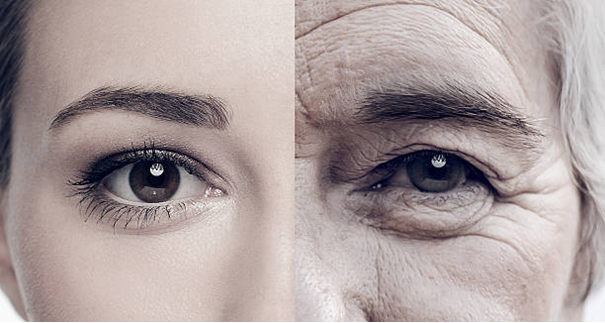As we age, our skin undergoes significant changes that can impact its appearance and health. From fine lines and wrinkles to sagging and discoloration, aging can take a toll on our skin. Understanding these changes and the solutions available can help us maintain a youthful and healthy complexion. In this article, we will explore the effects of aging on skin and the best ways to combat them.
The Biological Process of Aging
Aging is a natural biological process that affects all living organisms. As we age, our bodies undergo changes that can impact our skin, such as a decrease in collagen and elastin production. Collagen is the protein that gives our skin its structure, while elastin is responsible for its elasticity. As these proteins decline, our skin becomes thinner, less firm, and less flexible. In addition, the production of natural oils decreases, leading to dry and dull-looking skin.
The Effects of Aging on Skin
Aging can manifest itself in several ways on our skin. Here are some of the most common effects:
Fine Lines and Wrinkles
Fine lines and wrinkles are the most noticeable signs of aging. They are caused by a decrease in collagen and elastin production, which leads to the loss of skin elasticity and volume. Wrinkles can appear on any part of the face and body, but they are most common around the eyes, mouth, and forehead.
Sagging Skin
Sagging skin is another common effect of aging. As collagen and elastin production decline, the skin loses its firmness and begins to droop. Sagging skin is most noticeable on the face and neck, but it can also occur on the body.
Discoloration
Discoloration is another sign of aging that can occur due to several factors, including sun exposure, genetics, and hormonal changes. Age spots, dark circles under the eyes, and uneven skin tone are all examples of skin discoloration.
Dryness
Dryness is a common effect of aging due to a decrease in natural oil production. This can cause the skin to appear dull, flaky, and rough.
Solutions for Aging Skin
Although aging is a natural process that cannot be stopped, there are ways to minimize its effects on our skin. Here are some of the best solutions:
Skincare Routine
A consistent skincare routine is essential for maintaining healthy and youthful-looking skin. This includes cleansing, exfoliating, moisturizing, and using sunscreen. Look for products that contain antioxidants and retinoids, which can help boost collagen production and reduce the appearance of fine lines and wrinkles.
Non-Surgical Treatments
Non-surgical treatments, such as Botox and dermal fillers, can help minimize the signs of aging. Botox injections relax the muscles that cause wrinkles, while dermal fillers add volume to sagging skin. These treatments are minimally invasive and can be performed in a cosmetic clinic.
Surgical Treatments
Surgical treatments, such as facelifts and eyelid surgery, can provide more dramatic results for aging skin. These procedures involve removing excess skin and tightening the underlying tissues to create a more youthful and rejuvenated appearance. However, they are more invasive and require a longer recovery time.
Conclusion
Aging is a natural process that affects all of us, but there are ways to slow down its effects and maintain healthy, youthful-looking skin. By protecting your skin from the sun, eating a healthy diet, keeping your skin hydrated, using anti-aging products, and getting professional treatments when necessary, you can combat the effects of aging on skin and look and feel your best.
FAQs
What are the best ways to prevent skin aging?
There are several ways to prevent skin aging, including protecting your skin from sun damage by using sunscreen and wearing protective clothing, quitting smoking, eating a healthy diet rich in antioxidants, and staying hydrated. Additionally, using skincare products that contain retinoids, antioxidants, and hyaluronic acid can help to promote healthy skin.
Can skin aging be reversed?
While there is no cure for aging, there are treatments that can help to reduce the signs of aging on the skin. These may include cosmetic treatments like Botox, dermal fillers, and chemical peels, as well as medical treatments like laser resurfacing and microdermabrasion. Additionally, using skincare products that contain retinoids, antioxidants, and hyaluronic acid can help to improve the appearance of aging skin.
What is the best age to start using anti-aging products?
It’s never too early to start taking care of your skin and using anti-aging products. In fact, many dermatologists recommend starting in your 20s to help prevent premature aging. However, the best time to start using anti-aging products will depend on your skin type, concerns, and lifestyle factors.
What are the most common causes of premature aging?
The most common causes of premature aging include sun exposure, smoking, poor diet, lack of sleep, and exposure to environmental toxins. Additionally, genetics and hormonal changes can also play a role in the aging process.
Can lifestyle changes improve the appearance of aging skin?
Yes, making lifestyle changes like eating a healthy diet, staying hydrated, getting enough sleep, and reducing stress can all help to improve the appearance of aging skin. Additionally, avoiding sun exposure and quitting smoking can also have a significant impact on the health and appearance of your skin.
